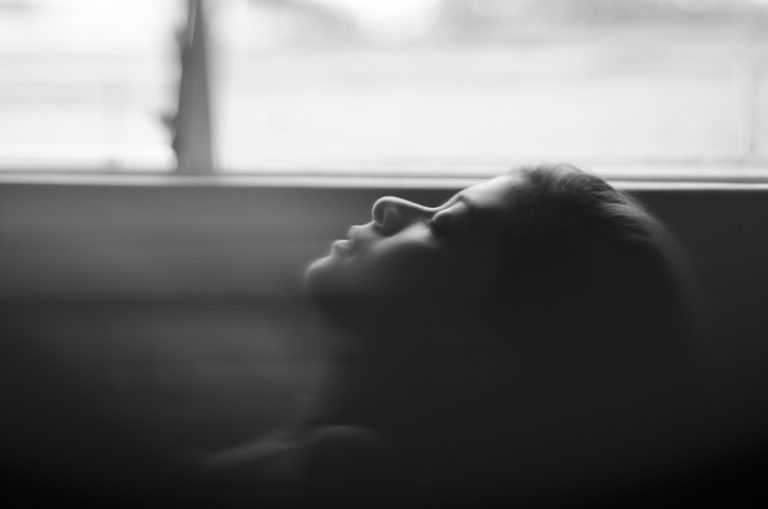
Image by Simón Góez E./Flickr, Attribution-NonCommercial-NoDerivs.
Seeing the Second Option: What’s In Avoidance
The word dukkha in Pali, the language of the original Buddhist texts, refers to the pain that arises out of the ungovernable nature of events in our lives. It points to those uncomfortable feelings that arise when we are faced with the fleeting nature of all things: sorrow, discontent, dis-ease, disappointment — all of which are difficult to bear.
In English, the common translation of dukkha is “suffering,” and sometimes more nouveau translators refer to dukkha as “stress.” But neither of these English words completely captures the subtlety of dukkha: it points to that deep sense of not-quite-rightness about life.
One of the traditional Buddhist illustrations of the term dukkha shows a chariot with an axle that simply doesn’t fit quite right. If the chariot were to move, there would be a rub, a jolt. Maybe nothing dramatic happens as a result; maybe the wheel stays put on the chariot, and all that results from a ride is a bit of discomfort. But the rider’s presumable awareness of the not-quite-rightness shades the experience with a level of discomfort. That is dukkha.
As I’ve been preparing for upcoming retreats and writing my next book, I’ve found myself thinking about dukkha in terms of what its opposite might mean. Is there such thing as total rightness? And if so, how do we achieve that rightness? Does it mean we have all of the answers? Is it even possible to feel like things “fit” in our lives if everything is always fleeting, if we are always met with unexpected disappointments, frustrations, and other surprises?
These questions resurface again and again when we meditate, as meditation is often perceived from the outside as an antidote to dukkha, to life’s inevitable struggles. Of course, if you’ve ever meditated, you know that meditation does not have any power to magically change your experiences; rather, it can change your relationship to your experiences by giving you the space to see what is without being driven by old reactions. We see the fact of the ill-fitting wheel and exist with it in the present, with a full heart, rather than projecting our fears, judgments, and assumptions onto the facts of our experience. This is, of course, easier said than done.

When I first started meditating, my most noticeable reaction was to the physical pain I felt from sitting. When I’d feel pain, I wanted it to go away and my mind would brim with judgments, blame, and limiting habits of mind. It was a powerful revelation to see the thoughts that arose in response to physical pain, and that kept me from simply being present with it. I would shift back and forth in my seat to avoid the feeling of numbness in my muscles and muted discomfort in my back, even though none of the pain I felt itself was acute.
With reflection, I now know that the not-rightness I felt was a composite of my mental and physical experiences: I was mostly suffering as a result of the thoughts in my mind, such as I am going to feel discomfort all day or I will always be uncomfortable when I sit to meditate for the rest of my life.
Through my own meditation practice and through teaching, I now know that dukkha, suffering, the sense of dis-ease in our lives — no matter what you want to call it — arrives most achingly not from uncomfortable circumstances but from our reactions to them. Culturally, we are all taught to turn away from pain, to disguise it as if it were disgraceful. Or, if we don’t disguise it, we label it or judge ourselves for feeling it and become the person in the chariot worrying about the effects of the ill-fitting wheel. We feel isolated rather than seeing our pain as part of the human experience.
That’s why meditation does not often feel as “Zen” as we might think, especially at first: it gives us the space to see and feel the reactions that come up when we invite ourselves to be with ourselves. When we observe something like back pain, for instance, we provide ourselves the opportunity to see its actual nature. Pain, like anything else, is a changing phenomenon with no fixed identity. The pain could be a cause for a million judgments and fears and assumptions. But it could also just be what it is. Meditation invites us to see that the second option is a possibility.

If you really think of the inner contortions we go through to avoid certain feelings, or when we dislike certain emotions, reflections, or perceptions, or things we don’t want to see about others, it gets to be a pretty small space we’re operating within. Ram Dass often tells a story his father used to tell him about a famous village tailor and a man who wanted a custom suit made for himself. The man went to the tailor, had his measurements taken, and came back the next week for a fitting. The suit, despite the tailor’s credibility, didn’t fit. When the man asked that the tailor fix the suit, the tailor told the man that nothing was wrong with the suit, but rather with the man’s posture. He should simply change how he was standing argued the tailor, who wouldn’t accept any resistance from the man. So the man left the store with his body lurched forward, neck strained neck, and shoulders uneven.
This story is like parable about the way most of us operate in life when it comes to recognizing what it is we are feeling. It’s hard, so hard that it sometimes feels easier to look away from whatever it is that’s going on — and feel even more pain as a result — than to cope with the direct experience of our initial discomfort. It’s not always rational.
Meditation, despite popular belief, won’t make us automatically more rational or peaceful. It is a practice, and provides a gradual expansion of our perspective. Instead of forcing ourselves to live metaphorically in a small, ill-fitting suit, we create a large, comfortable space for ourselves, in which sometimes pain will arise. With a more spacious quality of mind, we can learn to be open and free with anything.

Share your reflection